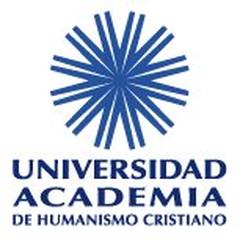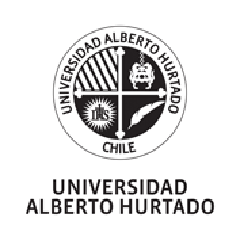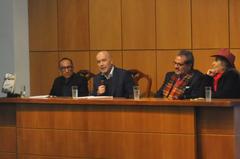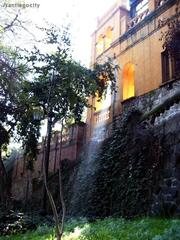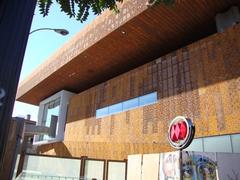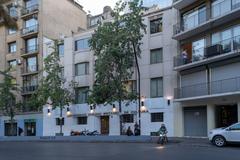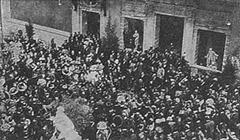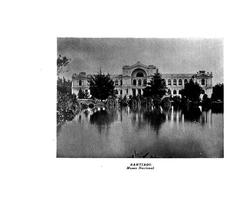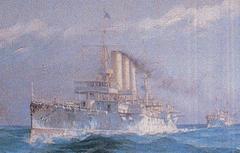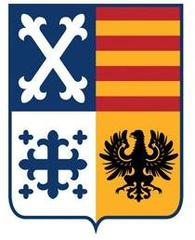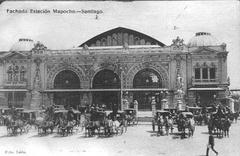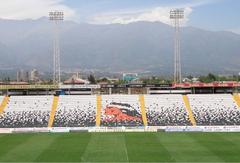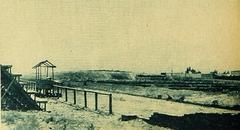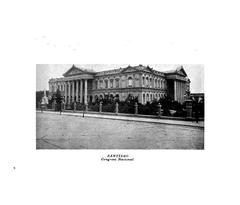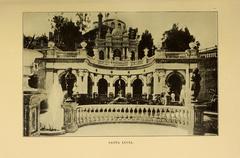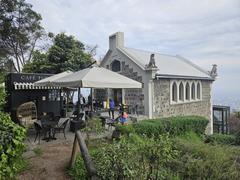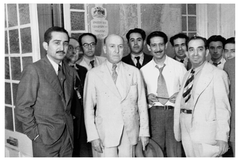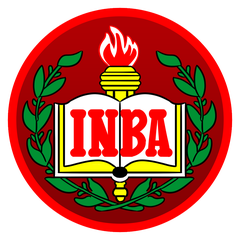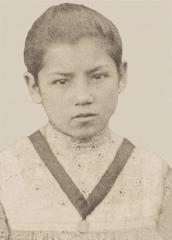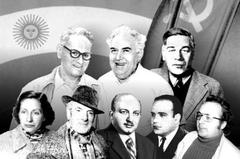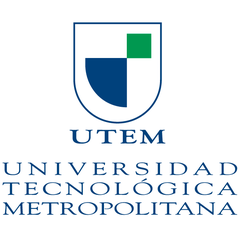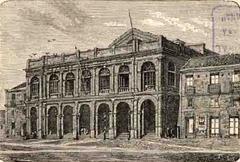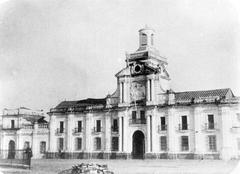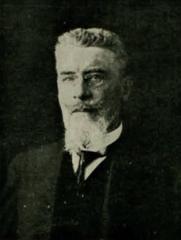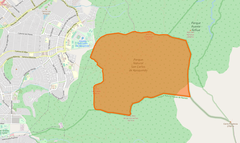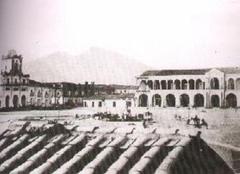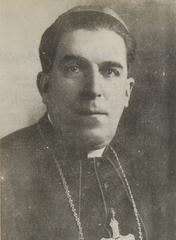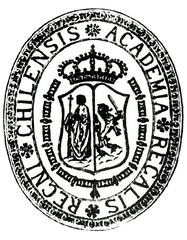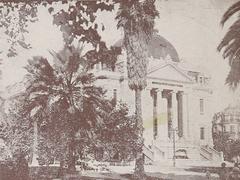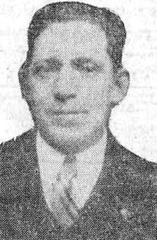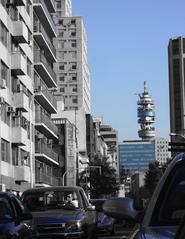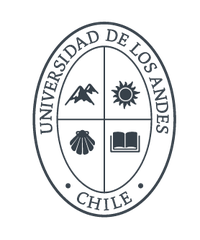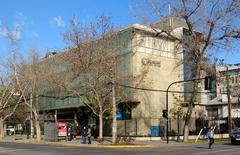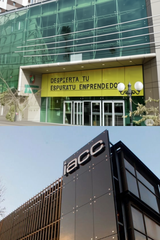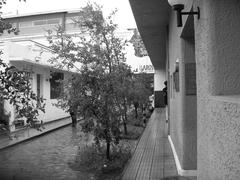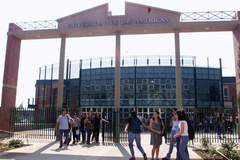Public Health Institute of Chile Santiago: Visiting Hours, Tickets, and Historical Significance Guide
Date: 15/06/2025
Introduction
The Public Health Institute of Chile (Instituto de Salud Pública de Chile, ISP) is a central institution in the Chilean health system, renowned for its role in regulating, researching, and safeguarding public health. Founded in 1892 as the Instituto de Higiene, the ISP has shaped Chile’s approach to disease control, pharmaceutical safety, and health policy for over a century. While not a conventional tourist attraction, the ISP offers unique educational experiences for students, health professionals, and researchers interested in public health science and regulation. This guide details the ISP’s rich history, its ongoing impact, and the practical information you need to plan a visit.
Table of Contents
- Introduction
- Historical Overview
- Core Functions and National Impact
- Societal Significance and Public Trust
- International Collaboration and Recognition
- Visitor Information
- Practical Visitor Tips
- Frequently Asked Questions (FAQ)
- Nearby Attractions and Services
- Conclusion
- References
Historical Overview
Founding and Early Development (1892–1930s)
Established in 1892, the ISP was originally created to address the challenges of urbanization and infectious diseases in Santiago. Operating as the Instituto de Higiene, its early objectives included combating smallpox and tuberculosis through laboratory diagnostics, vaccination campaigns, and public health education (AHWP, 2023; ISP Official History).
Expansion of Regulatory Functions (1940s–1970s)
By the mid-20th century, the ISP’s remit expanded to include the regulation of pharmaceuticals, vaccines, medical devices, cosmetics, pesticides, and disinfectants. Laboratory modernization and collaborations with the World Health Organization (WHO) helped the Institute adopt international standards (AHWP, 2023).
Modernization and Autonomy (1980s–2000s)
In the late 20th century, the ISP achieved greater autonomy while remaining under the Ministry of Health. The Institute responded to emerging diseases such as HIV/AIDS and H1N1 with improved research and rapid response capabilities, and it further specialized and expanded its scientific departments (AHWP, 2023).
International Integration (2010s–Present)
Today, the ISP is a Latin American leader in regulatory science, aligning its practices with ISO 13485 and WHO guidelines. It established its Department of Medical Devices in 2017 and is recognized by the WHO Vaccine Safety Net for its commitment to vaccine safety information (WHO Vaccine Safety Net).
Key Milestones
- 1892: Foundation as Instituto de Higiene
- 1940s–1970s: Regulatory expansion and international collaborations
- 1979: Reorganization as ISP
- 2017: Department of Medical Devices established
- 2019: Recognition by WHO Vaccine Safety Net
Core Functions and National Impact
- Disease Surveillance and Epidemiology: The ISP monitors communicable and non-communicable diseases, operating a national laboratory network and managing genomic surveillance (e.g., COVID-19 variants) (ISP COVID-19 Reports).
- Pharmaceutical and Medical Device Regulation: As Chile’s regulatory authority, the ISP evaluates, approves, and monitors pharmaceuticals, vaccines, and devices, aligning with international standards (PAHO Profile: Chile).
- Reference Laboratory and Research: The Institute provides advanced diagnostics, supports outbreak response, and conducts research on antimicrobial resistance and environmental health.
- Vaccine Policy and Immunization: The ISP is central to Chile’s National Immunization Program, guiding vaccine selection, safety, and public communication (Chilean Ministry of Health).
Societal Significance and Public Trust
- Health Equity and Access: The ISP works to ensure equitable access to safe medicines and diagnostics, publishing regular reports and collaborating with regional health authorities (ISP Publications).
- Crisis Response: Its transparent and effective responses to emergencies such as H1N1, Zika, and COVID-19 have set national and regional benchmarks (COVID-19 Response in Chile).
- Education and Engagement: The Institute offers professional training, public seminars, and accessible health information to build capacity and promote public trust.
International Collaboration and Recognition
The ISP is a WHO Collaborating Center and participates in global surveillance networks. Its contributions to the Latin American Network for Antimicrobial Resistance Surveillance and partnerships with PAHO and WHO are internationally recognized (WHO Collaborating Centers).
Visitor Information
Location and Accessibility
- Address: Avenida Marathon 1000, Ñuñoa, Santiago
- Getting There: Closest Metro station is Ñuble (Lines 5 and 6). Multiple bus routes and taxi services are available (Nomadic Matt; Overyourplace).
Visiting Hours and Tours
- Hours: Monday to Friday, 9:00 AM–5:00 PM. Closed weekends and holidays.
- Admission: Free, but visits are by appointment only and typically reserved for educational or professional groups.
- Booking: Schedule tours at least two weeks in advance via the ISP website.
- Entry Requirements: Government-issued photo ID (passport or Chilean ID) required. Security screening is standard.
Educational Materials and Accessibility
- Materials are available primarily in Spanish. English-language guides may be available upon request for group visits.
- Accessibility ramps and elevators are present, though some older areas may have limited access.
Special Events
- The ISP periodically hosts seminars, workshops, and conferences on public health topics. Check the ISP website for upcoming events.
Practical Visitor Tips
- Advance Booking: Arrange tours well in advance; bring identification and any required credentials.
- Language: Most staff speak Spanish; bring a translator or Spanish-speaking companion if needed.
- Dress Code: Business casual is recommended. Closed-toe shoes and long pants required for laboratory access.
- Health Protocols: Follow current hygiene and COVID-19 measures, including mask-wearing and vaccination proof where applicable (ISP official site).
- Security: Expect bag checks and restricted photography in sensitive zones.
- Facilities: Restrooms and a cafeteria are available. No gift shops; informational brochures may be provided.
- Nearby Amenities: Cafés, restaurants, and parks are within walking distance. Accommodation options are plentiful in nearby districts (World Travel Guide).
Frequently Asked Questions (FAQ)
Is the ISP open to the general public?
No, visits are by appointment and intended for professionals, students, or groups with relevant interests.
Is there an entrance fee?
No. Visits and tours are free but must be scheduled in advance.
Are there tours in English?
Some staff can accommodate English-speaking groups; request in advance.
Can I visit the laboratories?
Some laboratory areas are included in guided tours, subject to safety protocols.
Are there accessibility options?
Yes, but notify the ISP ahead of time for any special needs.
Can I take photos?
Photography is restricted in sensitive areas.
Nearby Attractions and Services
- Parque Bustamante: A nearby green space ideal for relaxation.
- Barrio Italia: A vibrant area with art galleries, boutiques, and dining.
- Local Amenities: Numerous cafés and restaurants within walking distance.
Conclusion
The Public Health Institute of Chile stands as a testament to more than 130 years of scientific rigor, regulatory leadership, and commitment to health equity. Its transformation from a hygiene-focused institute to a modern regulatory authority reflects global public health progress. While not a typical tourist site, visiting the ISP offers a unique educational experience into the science and policy underpinning public health in Chile. For up-to-date information on visiting hours, tours, and public health events, consult the ISP website and consider downloading the Audiala app for timely updates (WHO Vaccine Safety Net).
References
- AHWP Chile Report, 2023
- Public Health Institute of Chile Official History
- WHO Vaccine Safety Net – ISP Profile
- PAHO Profile: Chile
- ISP Contact Information
- ISP Official Website
- Nomadic Matt – Chile Safety
- Overyourplace – Santiago Culture
- World Travel Guide – Santiago History
